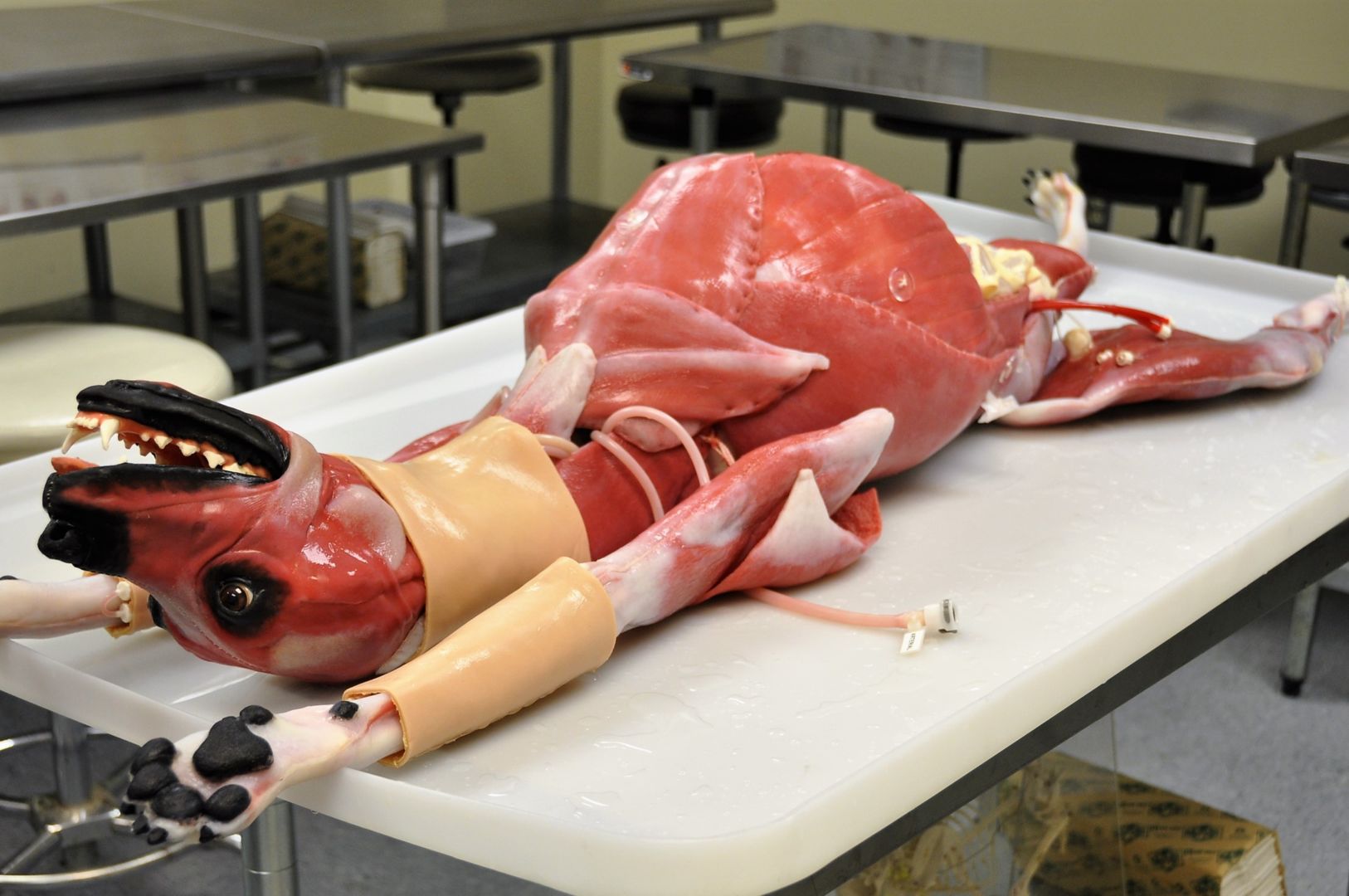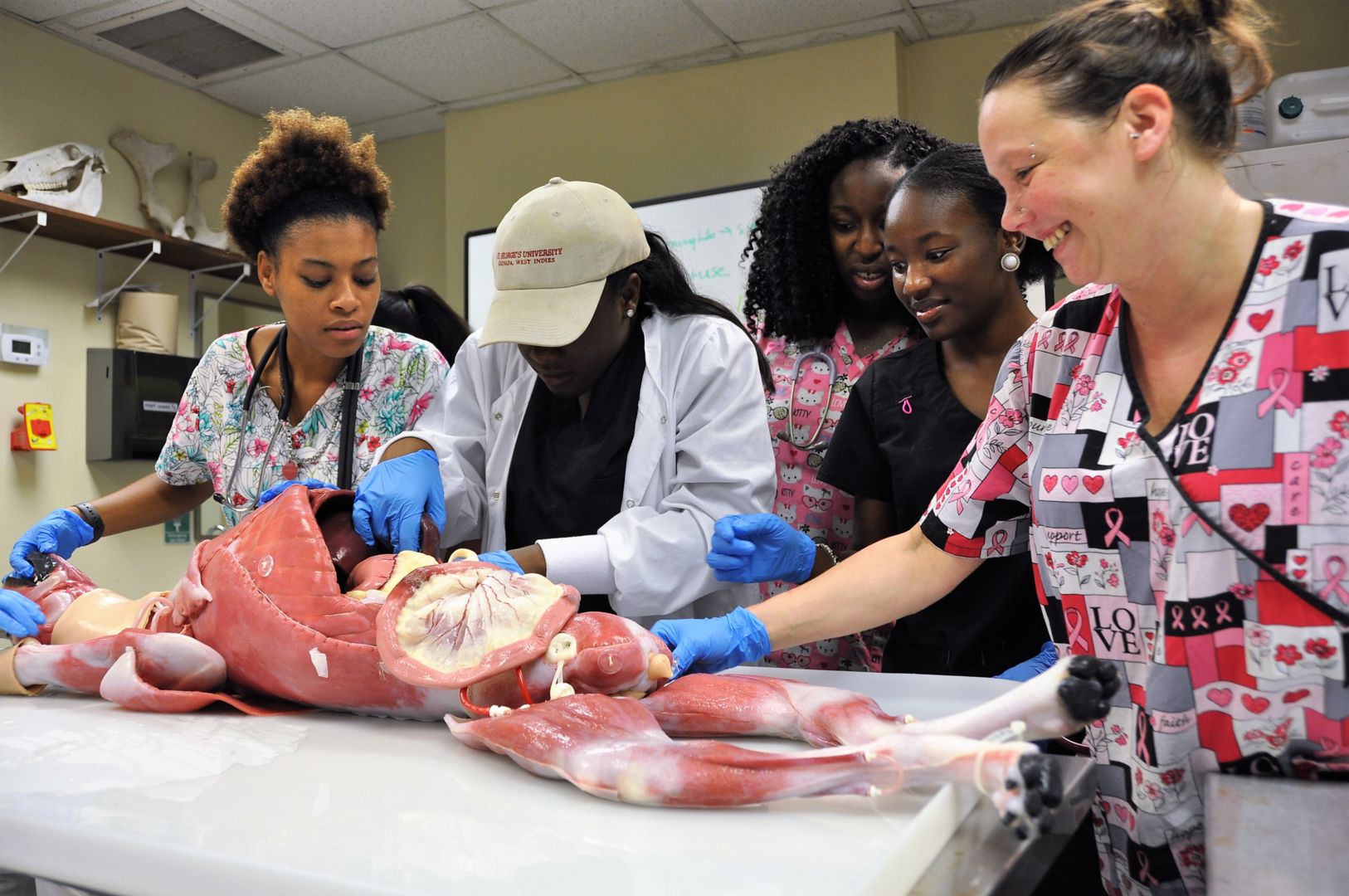Fort Valley State University students are putting their hands to work with the latest technology in animal health.
The Department of Veterinary Science and Public Health procured funding for a SynDaver Synthetic Canine, making FVSU the first school in Georgia to receive this model.
Housed at FVSU’s O’Neal Veterinary Science Building, the synthetic canine named Troy is a lifelike, anatomically correct animal model designed to replace live animals and animal cadavers in veterinary training. It provides an unparalleled platform for repeatable hands-on procedures. The synthetic model weighs 45 pounds and is a greyhound mix. It is made of water, fibers and salts, which mimic the properties of living organisms.
Originally designed to train veterinary students in surgical procedures, the SynDaver is working its way into the veterinary technician curriculum, being utilized for procedures such as venipuncture and urine collection and reinforcing the foundations of anatomy and physiology.
FVSU offers the only four-year veterinary technology program in Georgia. As the program continues to grow with 88 freshmen this year, Dr. Miranda Knight, veterinary science professor, says the training model will allow students to visualize multiple organ systems accurately.
“We are on the forefront of incorporating this technology in our curriculum,” she said. “This will give our students many more opportunities to confidently practice technical skills before attempting on a live animal.”
Students can practice endoscopy, suturing and surgical assisting in non-routine procedures, such as removing gastric foreign bodies or bladder stone removal.
“We try to mimic what they see in a clinic,” said Ann Gillespie, a FVSU veterinary technician. “Troy can have a different crisis every week.”

In addition to exposing students to more training, Gillespie said the department saves money on cadavers. She noted they keep Troy submerged in treated water when not in use and will send it back to the manufacturer in Tampa, Florida, each summer for replacement parts.
Two juniors majoring in veterinary technology are excited to be among the first students at FVSU to train with the SynDaver. “It is really beneficial, and we are a step above others,” said Jessica Afangnibo of Riverdale, Georgia. The 20-year-old likes the attention to detail and organic fibers used for the body, which is pliable and soft. “It is a lot similar to what we will do in actual surgery,” she said.
Shannon Johnson, 36, of Columbus, Georgia, agrees that the realistic texture is amazing. “It is really neat. We will not have to work on live animals all of the time,” she said. FVSU received funding to purchase the SynDaver through the Title III program’s Student Aid and Fiscal Responsibility Act (SAFRA) for “Enhancing Fort Valley State University’s STEM Instruction for the 21st Century Student through Cross-Curriculum and Inquiry-Based Laboratory Design.”
For more information about the synthetic canine, contact Knight at (478) 822-1028 or knightm@fvsu.edu.

